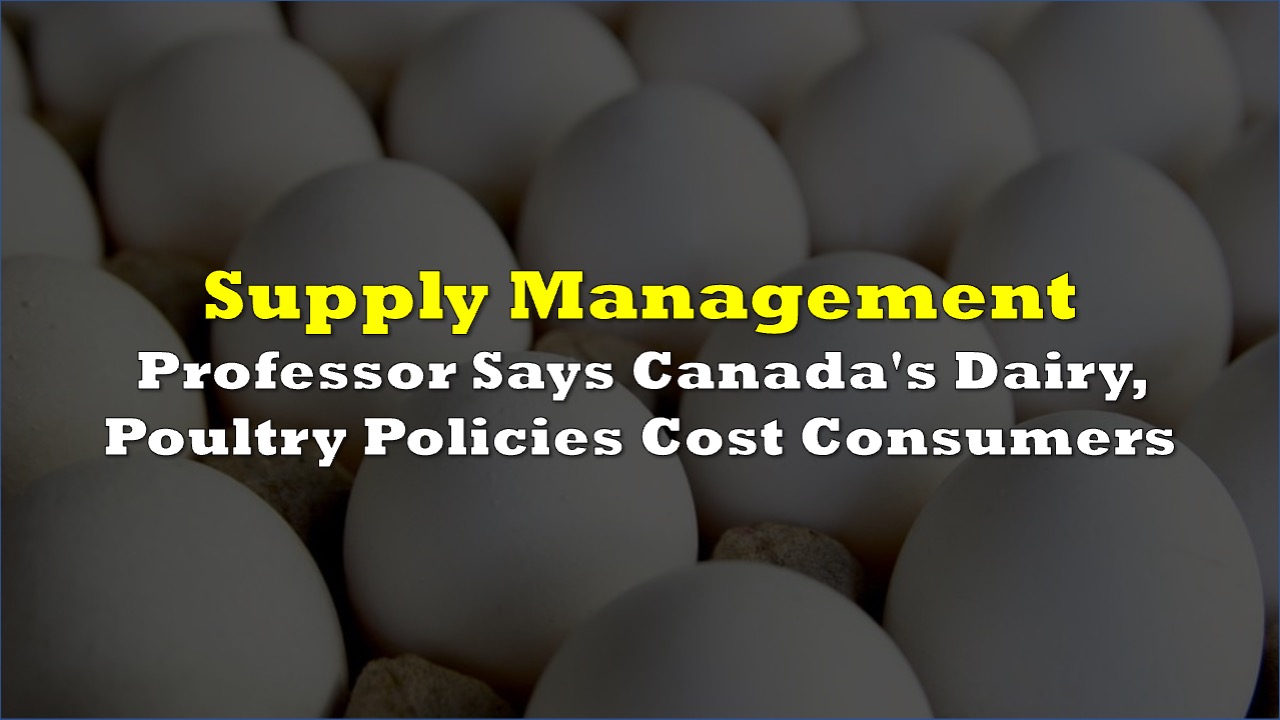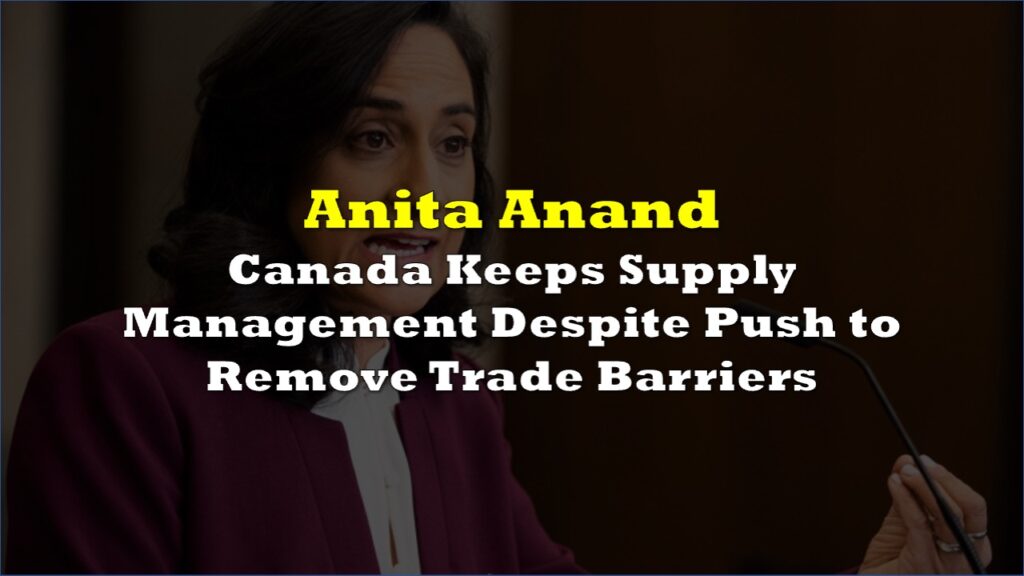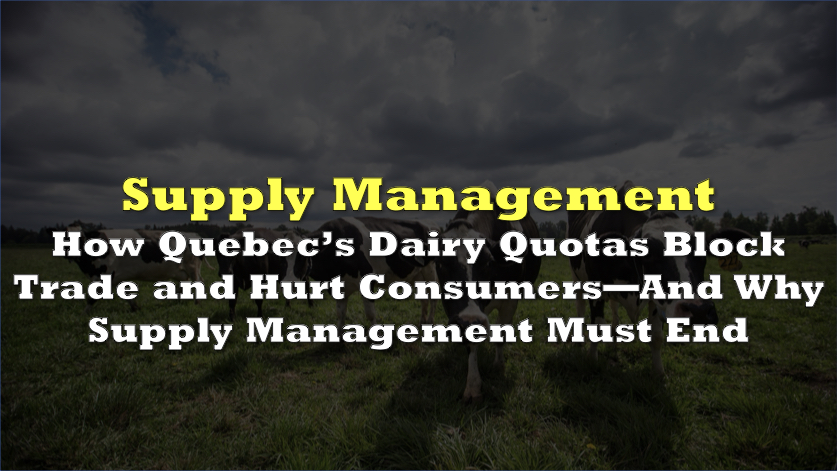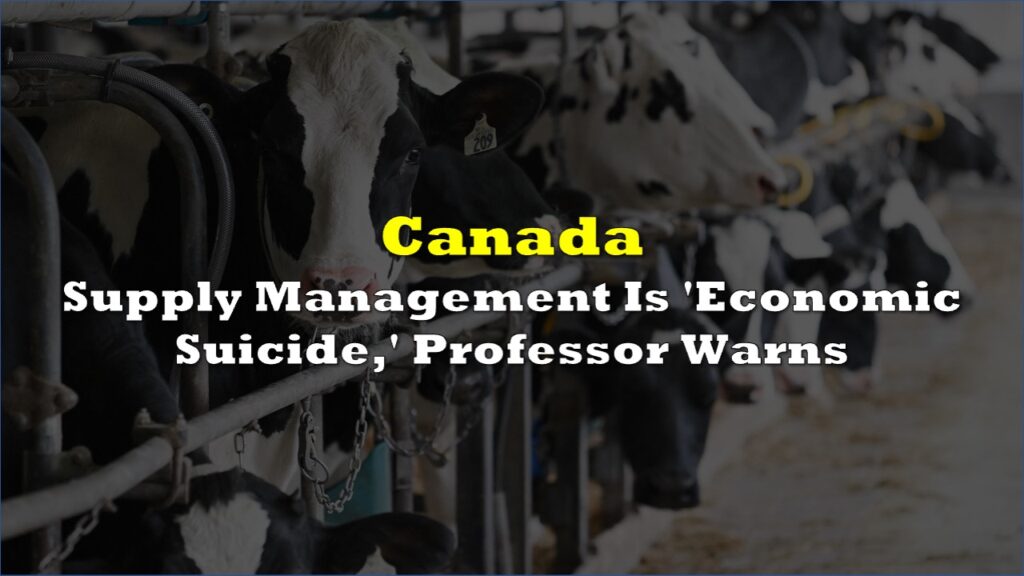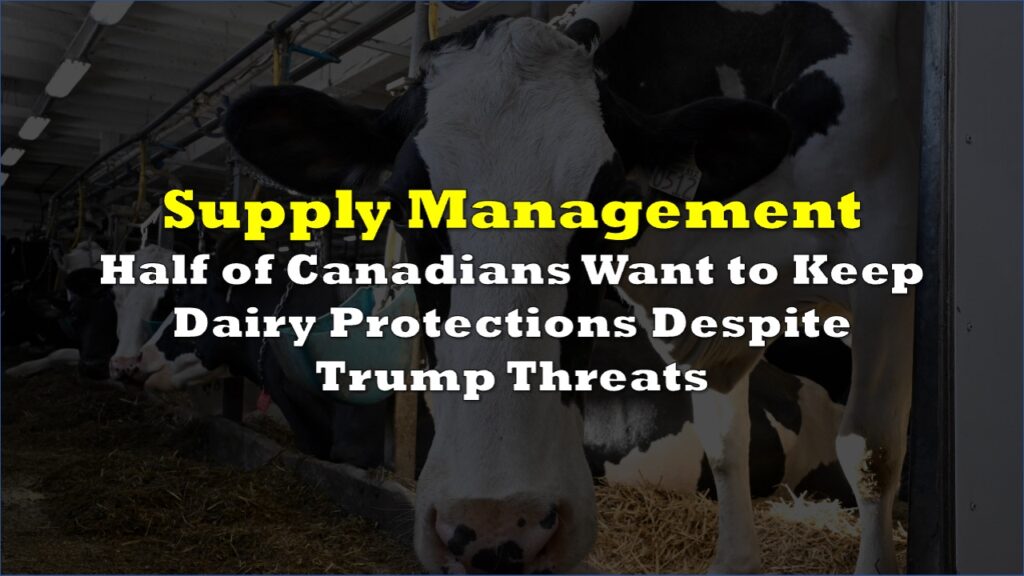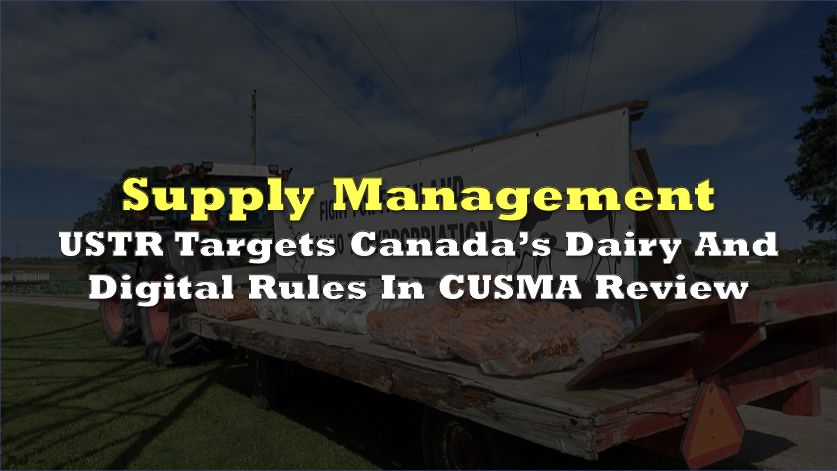A University of Manitoba professor said Canada’s supply management system for dairy and poultry costs consumers far more than it benefits farmers, arguing most Canadians would oppose the policies if they understood the true economic impact.
Ryan Cardwell, a professor of food and agricultural economics, wrote in the National Post that the system functions like “a textbook cartel” where producers coordinate to control national production levels and pricing.
Must read:
— Heather Exner-Pirot (@ExnerPirot) July 19, 2025
Supply management isn't free.
Once Canadians understand this, they will likely change their minds about supporting ithttps://t.co/k6s5TkIHgP
“Once Canadians understand this, they will likely change their minds about supporting it,” Cardwell wrote.
The system operates through production quotas that limit farm output, government-set pricing that ensures stable returns for producers, and import restrictions that protect domestic farmers from foreign competition.
Cardwell said families participating in supply management programs earn about $245,000 annually compared with the Canadian average household income of $116,000. He said support comes through an “implicit tax on food” that burdens low-income households about five times more than high-income families.
OECD data shows supply management policies account for about one-third of total farm revenues for participating producers, Cardwell said.
Also read: How Quebec’s Dairy Quotas Block Trade and Hurt Consumers—And Why Supply Management Must End
Cardwell said he was contacted by Globe and Mail and CBC Radio for interviews about supply management, but his comments were not included in either outlet’s final stories despite lengthy interviews and fact-checking. He said supply management interest groups have received about $5 billion in payments and shaped public discourse through marketing campaigns.
Despite potential economic costs, supply management enjoys broad political support across party lines. Cardwell’s research suggests minimal electoral benefits exist for any political party proposing to liberalize the current system.
“The political calculus for office-seeking politicians is simple. Our research shows there would be no electoral benefits for a party who proposes liberalizing SM,” he wrote.
Supply management organizations argue the system provides food security, supports rural economies and maintains higher production standards than international competitors. The regulatory framework covers dairy, eggs, chicken and turkey production, requiring farmers to purchase quota rights costing hundreds of thousands of dollars.
Canada has operated supply management for about 50 years, with majority support from Canadians and all major political parties pledging continued backing, according to Cardwell.
Information for this story was found via the sources and companies mentioned. The author has no securities or affiliations related to the organizations discussed. Not a recommendation to buy or sell. Always do additional research and consult a professional before purchasing a security. The author holds no licenses.

